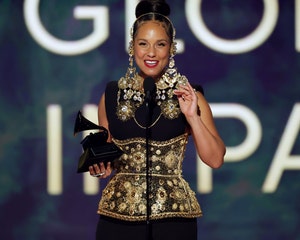The SAG-AFTRA Foundation kicked off Black Historic previous Month by launching the fourth season of its Legacy Assortment, a group of better than 200 never-before-seen career retrospective interviews.
This season focuses on trailblazing Black film and TV actors — beginning with the late Bill Walker, whose career spanned nearly 50 years and better than 100 motion pictures and TV reveals, along with “The Killers,” “The Prolonged Scorching Summer season” and “Our Man Flint.” Bear in mind Reverend Sykes, who urges Scout a.okay.a. Jean Louise to “stand up, your father’s passin’” as Gregory Peck’s Atticus Finch leaves the courtroom near the highest of “To Kill a Mockingbird”? That’s Walker in movement.
The veteran actor, who moreover served on the board of directors of the Show display Actors Guild from 1952 to 1971 (solely the third Black specific particular person to take motion), was interviewed about his life and career merely seven weeks sooner than he died in January 1992. Then 95 years earlier, Walker candidly recounts his journey from small metropolis Indiana (the place he was the one Black scholar to graduate from an all-white highschool) to acting on Hollywood’s silver screens and combating for greater illustration for Black actors.
Throughout the hour-long interview, Walker discusses his career highlights — along with engaged on 1950’s “Vivid Leaf” with Gary Cooper, who Walker generally known as “the perfect man I ever shook arms with” — and lowlights — identical to the time he was accused of being a Communist at a SAG board meeting.
Walker moreover shared phrases of information from his grandmother, who had been a slave, which he found to dwell by. “There’s concern and greed and all that available on the market, nonetheless don’t you go spherical on the planet collectively together with your fist all balled up, because of then can’t no goodness get in,” Walker’s grandmother, who had been a slave, suggested him when he graduated highschool. “That’s the message I’d prefer to depart with the world: ‘Unball your fists,’” he acknowledged.

Beginning inside the late Nineteen Forties, Choice lined Walker’s career, with early mentions in strong listings and for movement footage like “No Means Out” (with Sidney Poitier, Ruby Dee and Ossie Davis) and “The Harlem Globetrotters” (with Dorothy Dandridge). His first headline level out bought right here in 1952, when he landed a featured operate in “Mississippi Gambler.”
Walker’s obituary was printed inside the Jan. 28 model of Every day Choice and included was a recounting of the events of May 7, 1953, when he delivered a speech to urging Hollywood producers to hire further Black actors and to further fairly signify Black people on show display.

With fellow SAG board member Ronald Reagan at his aspect, Walker spoke on behalf of the union who had “decided it was time to stop talking and to behave to acceptable positive circumstances” and advocated for “speedy movement” on the matter, notably that Black actors be “strong in a better number of roles than the identical outdated butler and maid operate allotted them, along with ‘non-specifically Negro roles,’” that they be strong in all crowd and background scenes and, lastly, the “appropriate portrayal of the operate of Negroes in American historic previous.”
On the meeting, Walker suggested producers: “No specific particular person, no race, can stroll alone effectively. Don’t take away the roles the Negro now has in footage. Nonetheless give him further job options so that we could be part of with you inside the march in the direction of greater footage, further honest footage and bigger discipline office.”
As a result of the obituary notes (and the SAG-AFTRA Foundation dialog affirms), Walker waged his battle for inclusion and fairness for the rest of his life.
The Black Historic previous Month-timed season of the Legacy Assortment is a six-week assortment consisting of 12 episodes, launched on the SAG-AFTRA Foundation’s YouTube channel every Monday and Thursday. Interviews with Walker, Janet MacLachlan and James Avery are presently on the market, with Phylicia Rashad’s interview set to debut on Thurs. Feb. 6.
The remaining interviews shall be launched as follows:
Mon., Feb. 10: Eriq La Salle (filmed 5/8/2003)
Thurs., Feb. 13: Derek Luke (filmed 11/27/2006)
Mon., Feb. 17: Andre Braugher (filmed 1/15/2002)
Thurs., Feb. 20: Lorraine Toussaint (filmed 12/16/2012)
Mon., Feb. 24: Djimon Hounsou (filmed 1/8/2004)
Thurs., Feb. 27: Sophie Okonedo (filmed 1/12/2005)
Mon., Mar. 3: Blair Underwood (filmed 6/3/2008)
Thurs., Mar. 6: Mario & Melvin Van Peebles (filmed 4/7/2004)
The Legacy Assortment launched in 2024 as an progress on the SAG-AFTRA Foundation’s ongoing “Conversations” assortment, which choices in-depth discussions and career retrospectives with acclaimed actors. This method dates once more better than 40 years when the inaugural episode with actor Henry Fonda was recorded (on Dec. 15, 1979), nonetheless a lot of these talks had been unavailable until ultimate yr.
“Ten years prior to now, we embarked upon a big enterprise to guard, digitize and once more up this assortment, which for 35 years prior, had been recorded on numerous utterly totally different codecs,”. “So, in 2014, we started the strategy of digitizing these older conversations,” Rochelle Rose, SAG-AFTRA Foundation’s nationwide director of performers functions, suggested Choice’s Jenelle Riley on the launch. “To quote Helen Mirren, ‘It’s solely proper right here [at the SAG-AFTRA Foundation] that you just’ve an actual historic previous of performing — it’s by the use of these conversations.’”
The first season, “Emmy Winners,” featured episodes with Robert Duvall, Viola Davis, Henry Winkler, Jessica Walter, Peter Dinklage, Doris Roberts, S. Epatha Merkerson, William Shatner, Edie Falco, Edward James Olmos, Jean Good and Alfre Woodard.
The second season, “Icons,” included conversations with conventional Hollywood legends like Cyd Charisse and Tony Martin, Charlton Heston, Ernest Borgnine, Ralph Bellamy, Rod Steiger, Dennis Hopper, Kathleen Freeman, Norman Lloyd, Tippi Hedren, Farrah Fawcett, Jane Russell and David Carradine.
The third season, “Oscar Winners,” featured Fonda, Forest Whitaker, Rita Moreno, Shirley MacLaine, Marlee Matlin, Michael Caine, Kathy Bates, Cliff Robertson, Mary Steenburgen, Ben Kingsley, Ellen Burstyn and Christopher Walken.




















